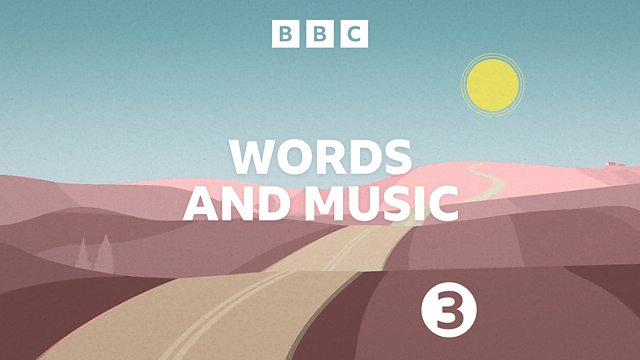
Star Light, Star Bright
Lorelei King and John Paul Connolly share poetry and music on the influence of the stars, including works by Keats and Whitman, and music by Cage, Vaughan Williams and Kraftwerk.
Lorelei King and John Paul Connolly are looking heavenwards, with poetry and music on the beauty, science and influence of the stars.
Includes poetry by Keats, Whitman, Katherine Mansfield and Gerard Manley Hopkins, plus wise words from theoretical physicist Richard Feynman, and music from John Cage, Vaughan Williams, Kraftwerk and Britten, to name only a few.
Producer Note
This edition of Words and Music celebrates the ancient pastime, art and science of star-gazing, beginning and ending with whatever secret wish upon a star you need to make...
The sheer vastness of the starry height is described for us by Katherine Mansfield and Gerard Manley Hopkins, accompanied by silvery starlit music from Eric Esenvalds and a violin concerto by Oliver Davis that takes as its inspiration the NASA Voyager probe, speeding through the galaxies. And Jerry Goldsmith's expansive Star Trek theme morphs into Holst's "Venus" - we know now it's a planet, but it was known to ancient civilisations as both the morning and the evening star...
Poetry from Louise Gluck and prose from Thomas Hardy express the feeling of human insignificance when set against the rolling night sky, as Jennifer Higdon's piano quintet "Scenes from the Poet's Dreams" races through stars, and as Robert Frost, underdog, leaps and barks with the great overdog - Canis Major.
Walt Whitman's poetic impatience with the learned astronomer's facts and figures is understandable perhaps, but those astronomers of old, the Magi, embraced both science and theology in their quest for the Star of Bethlehem. And staying with the theology for a while, Mary was commonly known as Our Lady, Star of the Sea in medieval times - a symbol of hope and guidance.
But back to the science - Philip Glass wrote his piece "Orion" as an evening-long piece for the 2004 Athens Olympics, as the constellation is visible from both hemispheres. We hear part of "Australia", complete with didgeridoo, accompanying Sir Patrick Moore with a brief excerpt from "The Sky at Night" in which he runs through part of his own "Caldwell Catalogue" of star clusters, nebulae and galaxies. Theoretical physicist Richard Feynman has no objection, as you might expect, to speaking of the wondrous science of astronomy, and we have an ... unexpected contribution from Professor Stephen Hawking as well. The words in the electro-pop offering from Kraftwerk tell us that "From the deeps of space radio stars are transmitting pulsars and quasars". Christine Paice's poem "A star against the eye" was written for National Science Week 2010 - "Science Made Marvellous".
A change of pace next with music by William Herschel, who not only was a composer of numerous symphonies, sonatas and concertos but was also Court Astronomer to George III and the discoverer of the planet Uranus. I have also included part of "Atlas eclipticalis" by John Cage, a piece of music that is made by superimposing musical staves over star charts, He writes that the piece is "a heavenly illustration of nirvana," and a performance "should be like looking into the sky on a clear night and seeing the stars."
We can't ignore the effects of stars on lovers, courtesy of Shakespeare, Keats and Puccini's aria from Tosca, whereas the hope or perhaps fear that the movements of the stars affects human fate is expressed by Siegfried Sassoon, Peter Grimes in Britten's opera, and in a catalogue of the stars in the zodiac in Vaughan Williams "Sons of Light".
The programme draws towards a close with hymns to the stars of evening, and finally, against a backdrop of Terry Riley's quirky "Sunrise of the Planetary Dream Collector", Louis MacNeice wrestles with the mind-blowing concept that the light from the stars began its journey millennia before we were born, and that we will never see the light that is setting out on that journey right now. Easier perhaps, to wish upon a star than to comprehend one...

